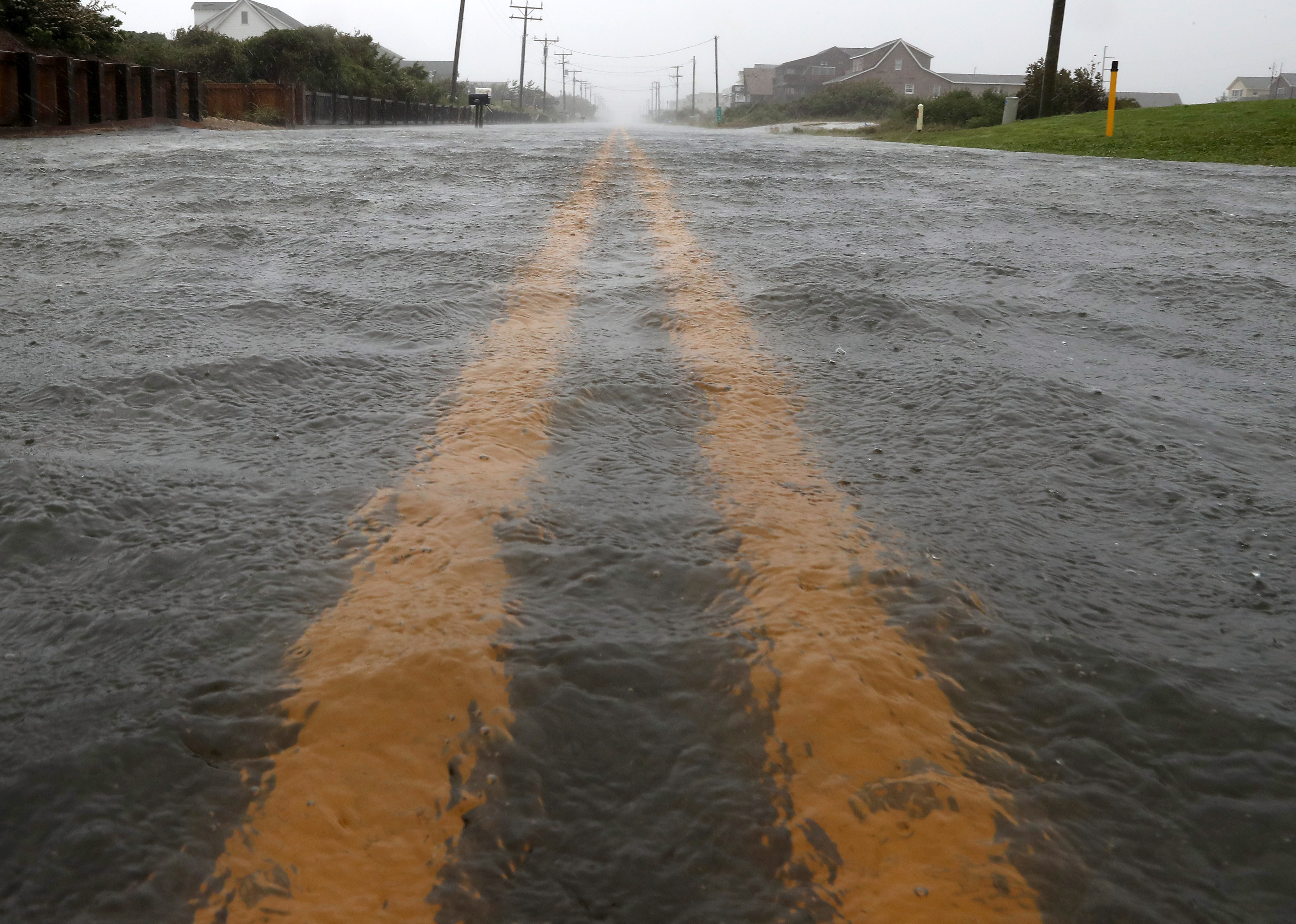How ‘resilience’ became a politically safe word for ‘climate change’
Both parties increasingly agree on investing in infrastructure upgrades to better withstand extreme weather

Climate change remains a deeply divisive term in some corners of Capitol Hill, but lawmakers from both parties are embracing the concept of “resilience” — building infrastructure engineered to better withstand devastating wind and floods associated with a warming planet.
The idea of building infrastructure better equipped to deal with natural disasters is appealing to fiscal conservatives who are loathe to keep spending taxpayer dollars rebuilding federal infrastructure just to see it destroyed again.
[Trump wants to reprogram DHS money for ICE detention operations]
It’s also appealing to those on the left, who see it as a reasonable and practical response to a changing climate.
“Liberal, conservative, left, right — it doesn’t matter when you’re talking about resilience,” said Thomas W. Smith III, executive director of the American Society of Civil Engineers. He said lawmakers have become exhausted with the “replace, destroy, replace, destroy” cycle that federal disaster response has become.
“Resilience” has become a buzzword on Capitol Hill:
- A transportation spending bill advanced by the Senate Appropriations Committee last week had not one, but two sections urging federal and state governments to embark on projects designed to withstand devastating weather impact.
- The House Transportation and Infrastructure Committee marked up a bill Sept. 19 that would create a revolving loan fund to rebuild projects destroyed by extreme weather. Among the bill’s most enthusiastic supporters: former Freedom Caucus Chairman Mark Meadows, R-N.C., who said at the markup, “There’s nothing that this committee will do that will affect the lives of millions of people in this country more.”
- The highway bill that the Senate Environment and Public Works Committee approved in July included $10 billion in its first-ever “climate change” title, including some $5 billion over five years to improve the resiliency of roads and bridges to withstand extreme weather events.
A focus on impacts
Carol Werner, executive director of the Environmental and Energy Study Institute, said the embrace of the term “resilience” may represent the first step toward a large-scale acceptance of the impact of climate change.
The term is a more politically palatable one than climate change, she noted. “It was like ‘he who could not be named,’” Werner said, referring to Voldemort, the villainous character in the popular Harry Potter books.
But even the term “climate change” is gradually being acknowledged in legislation, she said. The inclusion of a climate change title in the highway bill shows the phenomenon has been acknowledged in the legislation.
[Bipartisan bills push carbon tax, as GOP pollster offers Democrats help on climate]
“I think within the last year there has been such a difference in tone and nomenclature with regard to thinking about climate and what it represents,” Werner said.
Part, she said may be spurred by Democrats retaking the House majority. Part may be polls indicating the majority of Americans believe in climate change.
And part may be the growing burdens associated with catastrophic weather events: According to the Government Accountability Office, federal appropriations for disaster relief between 2007 and 2013 increased 46 percent compared to the previous six-year period, with the total cost of weather disasters reaching $312.7 billion in 2017.
Bipartisan support for resilience investing may have been bolstered by a 2018 National Institute of Building Sciences study that found that every $1 invested in resilient infrastructure saves $6 in future disaster costs.
“We can’t do things the way we did them before,” Werner said.
R.J. Lehmann, a senior fellow at the center-right R Street Institute, said the embrace of the term dates back to hurricanes in 2004 and 2005, but a series of devastating storms in 2017 “certainly helped put it back on the agenda.”
He said while Republicans have been wary of the term “climate change” because they view it as politicized, “you can easily make the case” for resilience language “on pure fiscally sensible budget grounds.”
His group believes in climate change. They also, Lehmann said, believe “we spend a lot of taxpayer money on rebuilding federal infrastructure.”
“Just acknowledging weather and disaster risk — irrespective of climate change — is something every fiscal conservative should support,” he said, adding that the idea of resilient infrastructure “should unite people who might ideologically be far apart on lots of other issues.”
Among the first congressional committees to embrace the idea of resilient infrastructure were the House and Senate Armed Services committees, which legislated resiliency into the fiscal 2019 National Defense Authorization Act.
That law included a measure requiring the Defense Department to submit a report detailing the 10 most climate-vulnerable installations for each service branch, and directing the secretary of Defense to require any proposed Defense construction project report on whether it would be sited within a 100-year floodplain.
Joel Scata, an attorney with the Natural Resources Defense Council’s water and climate team, said some of the acceptance has been in districts that have dealt with catastrophic weather events firsthand. Witnessing it, he said, “changes how you perceive” the problem.





